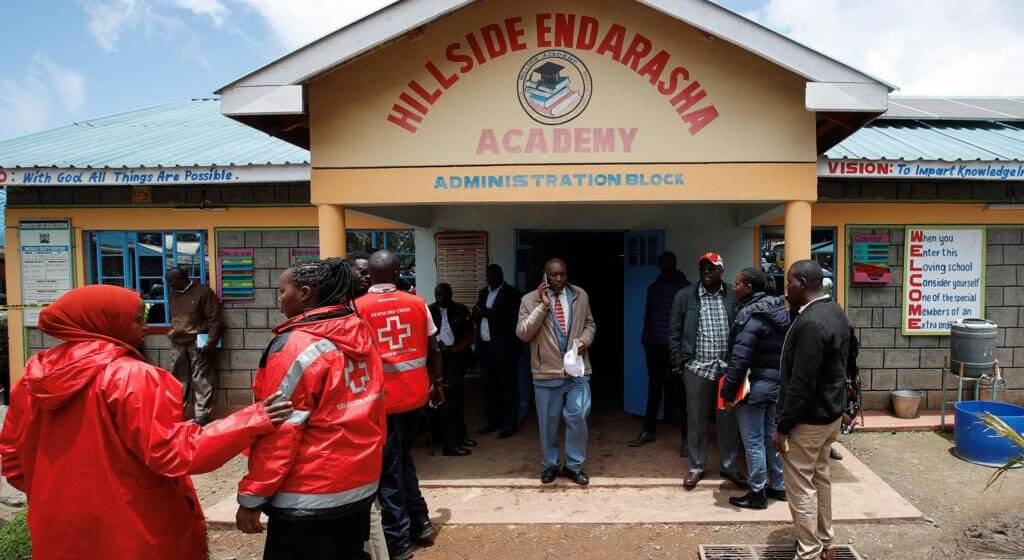|
LISTEN TO THIS THE AFRICANA VOICE ARTICLE NOW
Getting your Trinity Audio player ready...
|
The Ministry of Education Wednesday, November 27, ordered the closure of boarding facilities in 348 primary schools across the country. The directive followed a nationwide audit conducted in September and October that exposed glaring lapses in safety compliance.
The safety review had been prompted by a devastating fire at Hillside Endarasha Academy in Nyeri County earlier in September. The tragedy claimed the lives of 21 boys after a dormitory blaze erupted in the middle of the night, leaving several others injured and causing extensive property damage. The incident drew widespread outrage, with calls for stricter oversight in school safety standards.
Education Principal Secretary Belio Kipsang, in a circular addressed to regional, county, and sub-county education directors, stated that the affected schools had violated critical safety measures outlined in the government’s safety framework for educational institutions. The boarding sections of these schools were deemed unfit for operation, and the closures were to take immediate effect.
Nairobi County recorded the highest number of non-compliant schools, with 44 institutions affected. Other counties with significant numbers included Kericho (26 schools), Uasin Gishu (19), Nandi (15), and Kisii (13). Among the prominent schools in Nairobi cited in the report were Visa Oshwal Primary School, Jonathan Gloag Academy, Don Bosco Primary School, and St. Anna’s Preparatory School.
The audit uncovered a range of safety deficiencies, including poor dormitory conditions, lack of functioning fire equipment, inadequate sanitation, and substandard management of learners’ welfare. These shortcomings, the ministry concluded, posed an unacceptable risk to students’ safety and well-being.
As part of the directive, the government instructed these schools to operate solely as day schools starting January 2025. This sudden decision left parents scrambling to find alternative accommodations for their children, with only a few weeks remaining before schools reopened.
While the closures were widely seen as necessary to address systemic safety issues, they also highlighted deeper challenges within the education sector. Some parents voiced frustration over the abrupt timeline, arguing that more notice should have been given to facilitate a smoother transition.
The Hillside Endarasha tragedy had served as a stark reminder of the risks posed by lax safety standards in schools. In response, the ministry vowed to enforce stricter compliance measures across all institutions and called on school administrators to prioritize safety above all else.
Education stakeholders have since urged the government to provide additional resources to help affected schools meet the required standards. Meanwhile, parents, educators, and policymakers are bracing for the ripple effects of this decision as they navigate the complex adjustments ahead.











LEAVE A COMMENT
You must be logged in to post a comment.